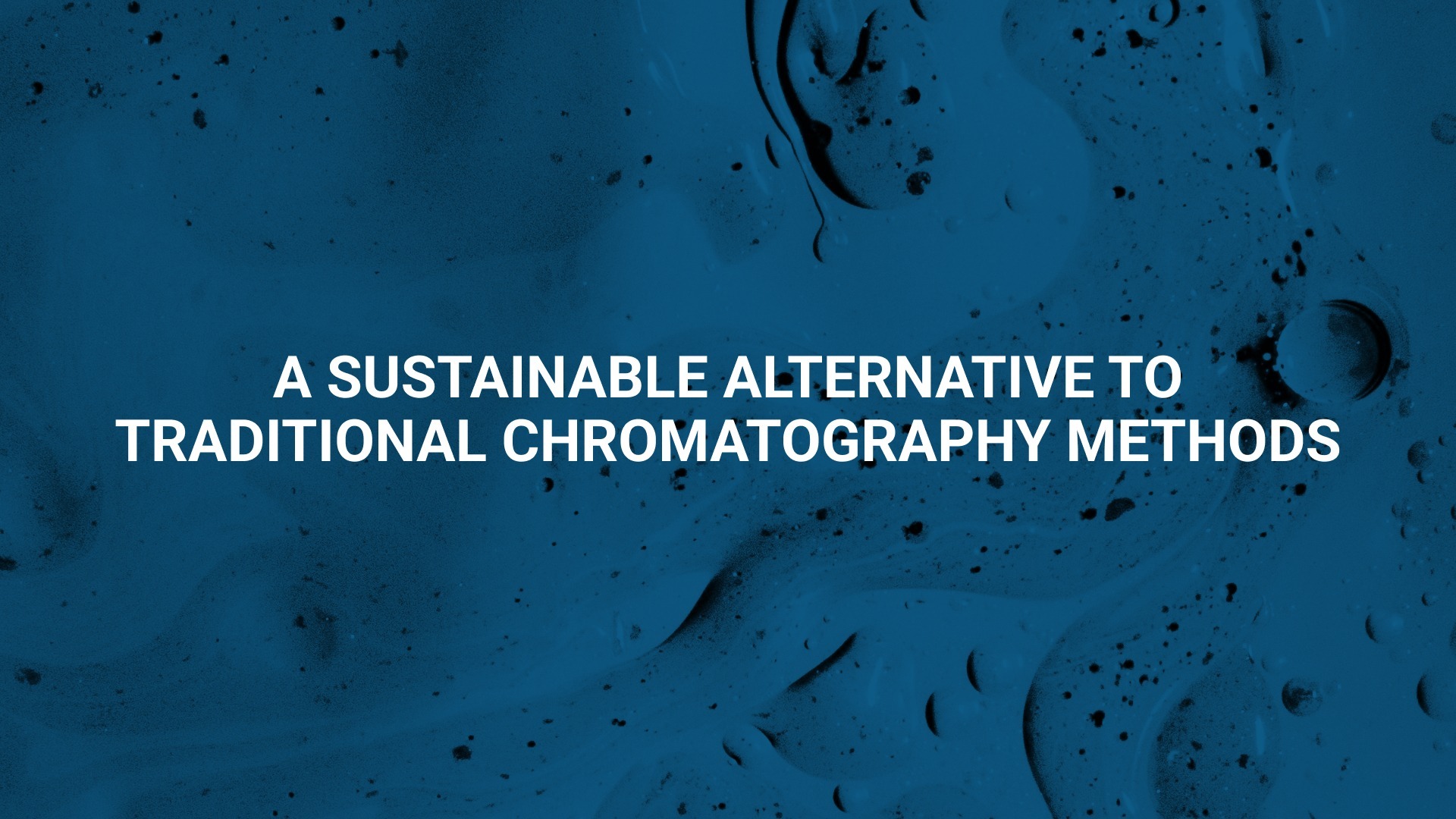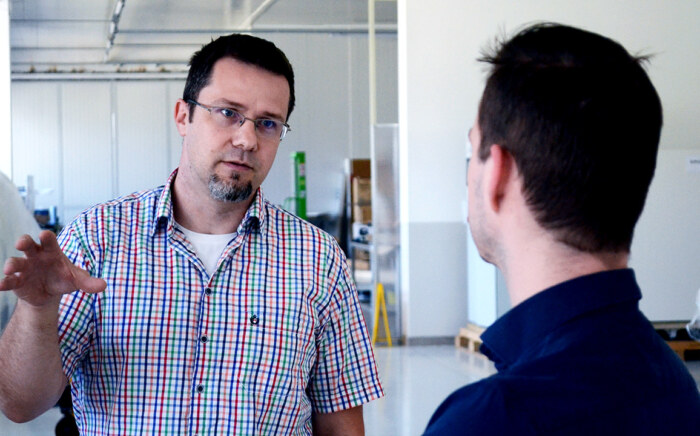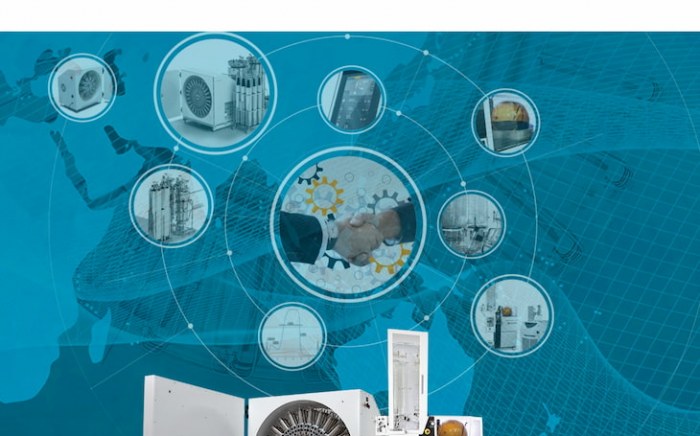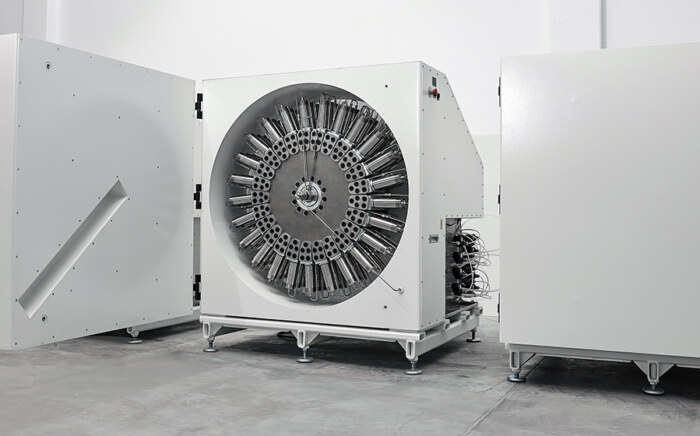Increasing separation efficiency by pH adjustment in Centrifugal Partition Chromatography
NewsChromatography, a cornerstone technique in chemical analysis and separation, has long been dominated by methods that, despite their effectiveness, pose significant environmental challenges. Traditional chromatography often relies on solid supports like silica gel columns, leading to high solvent consumption, waste generation, and environmental concerns. In contrast, Centrifugal Partition Chromatography (CPC) is emerging as a sustainable alternative, addressing these issues and offering greener solutions. Let’s delve into the reasons why traditional chromatography is deemed unsustainable and how CPC presents a more environmentally friendly approach.
High Solvent Consumption in Traditional Chromatography
Traditional chromatography methods often rely heavily on solid supports, such as silica gel columns. These methods necessitate the use of large amounts of solvents to elute compounds from the solid matrix. This high solvent consumption is problematic for several reasons:
- Environmental Impact: The extensive use of solvents, particularly hazardous organic solvents, raises significant environmental and economic concerns. The disposal or recovery of these solvents can be energy-intensive and costly, adding to the carbon footprint and overall environmental burden of the process.
- Waste Generation from Solid Supports: The use of packed columns with materials like silica gel results in substantial solid waste generation. Disposing of spent solid supports poses challenges in waste management and contributes to environmental pollution.
- Limited Range of Available Solvents: Traditional chromatography typically operates with a restricted set of solvents that are compatible with solid supports like silica gel. This limitation hampers the optimization of solvent systems for specific separations, constraining the flexibility and efficiency of the process.
CPC: A Greener Approach to Chromatography
CPC operates as a liquid-liquid chromatography technique, fundamentally differing from traditional methods by eliminating the need for solid supports like silica gel. This distinction offers several environmental advantages:
- Reduced Solvent Consumption: Without the need for solid supports, CPC significantly reduces solvent consumption. The technique relies on the immiscibility of two liquid phases to achieve separation, minimizing the volume of solvents required for elution.
- Minimized Solid Waste: By eliminating the use of packed columns, CPC reduces the generation of solid waste associated with traditional chromatography. This not only simplifies waste management but also lessens the environmental impact.
- Broader Range of Solvents: CPC allows for the use of a wider variety of solvents, including greener and more sustainable options. This flexibility enhances the ability to optimize separation processes while aligning with sustainability objectives.
Enhancing Sustainability with Efficient Solvent Recycling
To further enhance the sustainability of CPC, efficient solvent recycling techniques are integral. These techniques help reduce solvent consumption, minimize waste generation, and maximize solvent reuse, contributing to greener chromatographic separations. Key solvent recycling methods include:
- Membrane Filtration: Integrating countercurrent chromatography with organic solvent nanofiltration (OSN) has proven to be a cost-effective approach for purifying APIs. This combination achieves high efficiency and underscores the importance of optimizing CCC mass-efficiency.
- Dialysis: This technique is used to isolate separated compounds and recycle phases. Dialysis shows promise in reducing the carbon footprint compared to CPC runs without recycling, making it a valuable tool for enhancing the sustainability of the process.
- Ultrafiltration: Demonstrating substantial solvent recovery results in CPC processes, ultrafiltration enables high recovery rates and purity before recycling solvents. This technique significantly reduces the carbon footprint by facilitating solvent reuse.
- Density-Based Recirculation: Investigating continuous in-line solvent recycling and readjustment based on density measurements can enhance CPC cycles. This method yields high-purity products while recovering solvents for reuse, further optimizing the efficiency and sustainability of the process.
Conclusion
Centrifugal Partition Chromatography (CPC) represents a sustainable alternative to traditional chromatography methods, addressing key environmental concerns associated with high solvent consumption, waste generation, and limited solvent flexibility. By operating as a liquid-liquid chromatography technique and incorporating efficient solvent recycling methods, CPC significantly reduces the environmental impact of chromatographic separations. These advancements pave the way for greener and more efficient processes, contributing to sustainable practices in various industries, including pharmaceuticals, biotechnology, and chemical manufacturing. As research and technology continue to evolve, CPC is poised to play a crucial role in driving the shift towards more environmentally friendly chromatographic techniques.



